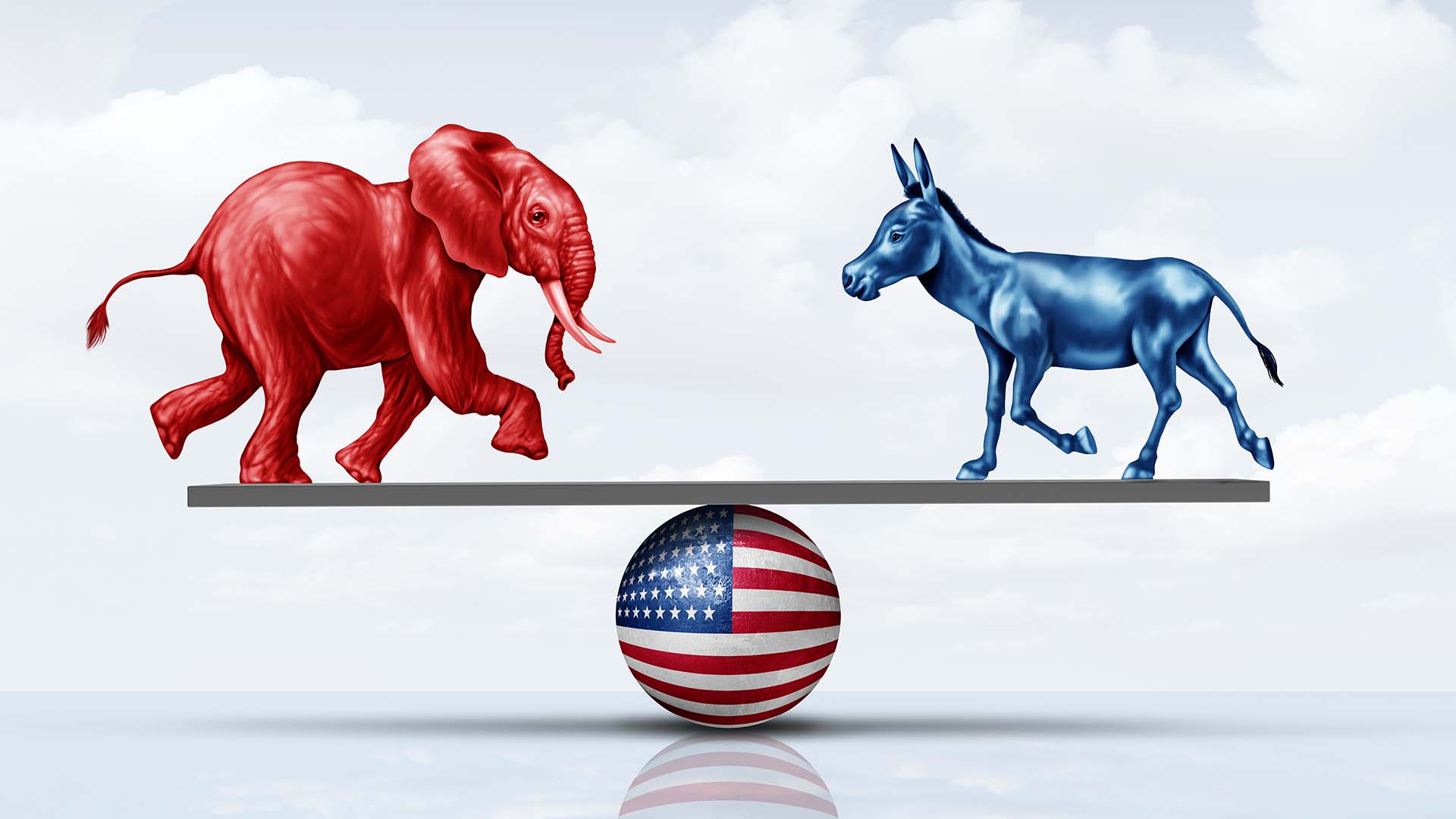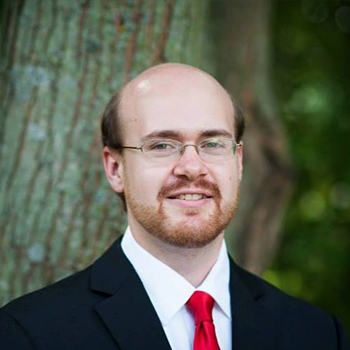Are presidential elections bad for your health?
A Psychology professor offers tips for managing the stress of bipartisan politics.

Americans are living under a political-messaging blitzkrieg just now.
Turn on the TV, check your social feeds, answer your phone, even visit the grocery store, and you’ll likely face a bombardment of posters, polls, political ads and donation requests.
If you feel this is bad for you, you’re not necessarily wrong. Research has shown that such excessive politicking, particularly in such a starkly partisan moment, can take a mental and even physical toll on the U.S. citizen.
Randi Smith, Ph.D., Psychology professor at Metropolitan State University of Denver, offers some self-care tips to help people stay safe (and sane) as Election Day looms.
Before the 2020 election, 56% of U.S. adults cited the event as a “significant source of stress,” and political polarization has only intensified since then. What can we expect this time?
I can’t see any reason why the stress would be less this time around. Given the events of Jan. 6, 2021, the assassination attempt on Donald Trump and increasingly hostile rhetoric, there’s not only the usual anxiety about “will my candidate win?”; voters are also concerned about whether there will be a safe election and a peaceful transfer of power.
In recent years, Americans have increasingly complained of postelection stress disorder. What coping strategies would you suggest for politically invested people if things don’t go their way?
We need to stop thinking of elections as Las Vegas casinos, where we’ve put all our chips on one person and the result means we’ll either hit the jackpot or be completely destroyed. This nation has weathered almost 250 years of political ups and downs, of seemingly irreconcilable differences so extreme that they brought about a civil war. But the founders, wise in so many ways, recognized that discourse and disagreement were essential to a democracy and built in important checks and balances on individual power.
I’m not trying to minimize this election’s significance. But let’s remember that many of the most dire predictions (for example, that we’ll lose our democracy) are designed to mobilize the vote. Catastrophizing is a common cognitive error — put simply, our brains are good at imagining worst-case scenarios. But we should remind ourselves that the world will not necessarily crumble if our preferred candidate doesn’t win.
The point isn’t to try to change anyone’s mind but simply to engage with others with respect and interest, even when your respective values may clash.
Talking about politics with family, friends and work colleagues can currently feel incredibly stressful. How should we approach such situations?
As curious listeners and with respect. In my family, there’s a political conversation that will live in infamy, when one sibling said to another, “How can you be so stupid?!” It didn’t go over well, to say the least. Ascribing stupidity, gullibility, moral deviance or hate to others’ political motivations is neither fair nor useful.
This semester, I’m involving my students in Unify America, an organization that “creates interactive experiences to help people bust out of their bubbles, build their civic muscles and work together to tackle our country’s biggest challenges.” Participants sign up to have an hourlong virtual conversation with a stranger who has different political leanings. The point isn’t to try to change anyone’s mind but simply to engage with others with respect and interest, even when your respective values may clash.
RELATED: How to talk to your family about politics without losing your cool
Social media is the engine that powers a lot of politics-based stress and aggression, particularly during an election year. How can people prevent their social feeds from driving them crazy?
First, by engaging in social-media fasts — or, at least, diets. And if you do go online, aim for dispassionate observations rather than heated, front-line engagement. Most of all, remember this: Although social platforms give prominence to the most extreme views, most vehement arguments and most radical takedowns, that’s only because they are controversy aggregators and outrage is their business model. Such outlooks are not necessarily representative of most people’s actual beliefs.
Everyone knows that awful sensation of being dragged into a political debate they would rather avoid. How can we set boundaries and stay outside the fray?
I’m actually a little sad that it seems like we’ve stopped talking to one another. Granted, the fray might sometimes feel combustible. But what if we all tried to think about such interactions less as fraught and dangerous and more as opportunities to better understand one another and learn from our differences? Having said that, I do recognize, even with my own family, that this may be a Pollyannaish aspiration.
So how do we set boundaries? Some simple words — such as ‘Let’s not go there,’ ‘I’d rather talk about something else’ or ‘This doesn’t feel productive; let’s move on’ — can be effective in most situations. And for those people who insist on jamming their ideas down your throat, my advice is to keep your feet moving. Better to invent a ‘Sorry, I’ve got to run’ excuse than to find yourself trapped in an exchange that’s doomed to escalate, invalidate or alienate.
In our country, it’s always possible for ordinary, unelected citizens to assert some small influence and fight for justice, not just with our ballots but with our own service closer to home.
Is there any merit in running toward the fire — in other words, actively engaging in your local political process?
Absolutely. Ask yourself how you can best stand up and speak out for your beliefs in your own community. True political progress often starts with grassroots efforts, and there are so many ways to volunteer locally for causes you find particularly meaningful.
Some examples: writing letters to congressional representatives; attending meetings of the school board or City Council; starting a food bank for people in your neighborhood; petitioning; picketing; marching. These are all ways to push through any sense of helplessness and become a force for positive change. In our country, it’s always possible for ordinary, unelected citizens to assert some small influence and fight for justice, not just with our ballots but with our own service closer to home.
RELATED: Latinos are the second-largest group of voters in America. Here’s what impacts their vote
Should we try to lean on the people around us for support? And what if they are on the ‘other side’?
Yes. We should never underestimate the value and importance of social support. If you’re feeling stressed about the political process, then finding others who share a similar viewpoint could be a real comfort. However, try not to get too caught up in mutual complaints and fearmongering. While it’s fine to take a little time to air your dread or disappointment, you should then both move on to more positive topics.
And a counter suggestion: It might also be helpful to spend time with people who voted differently from you — not to gloat or compete, nor even to talk about politics at all. The value in such interactions will be seeing that many of their hopes and dreams are the same as your own.






